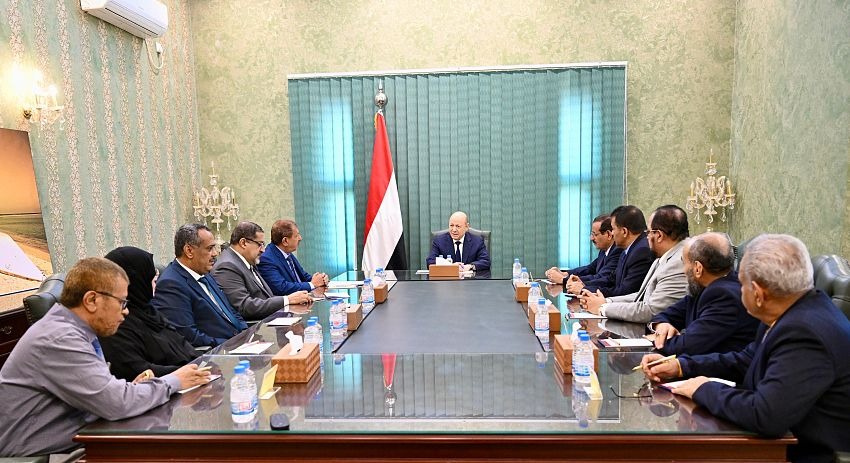


Barran Press
President of Yemen's Presidential Leadership Council, Rashad Al-Alimi, received copies of draft laws amending judicial fees and blood money regulations on Sunday, August 25th, from the Supreme Judicial Council.
The handover took place during a meeting in Aden, the temporary capital of Yemen, between President Al-Alimi and Supreme Judicial Council President, Judge Mohsen Yahya Talib, and members of the council, according to the official Yemeni news agency Saba.
According to Saba, Al-Alimi received a copy of the draft amendment to Law No. (4) concerning judicial fees and a copy of the draft amendment to Article (40) concerning blood money, as per the Presidential Decree by Law No. (12) of 1994 regarding crimes and punishments, as amended by Law No. (32) of 2006.
The amendments aim to curb frivolous lawsuits filed in primary courts, restrict perpetrators, and deter attacks on individuals and their bodies by imposing stricter penalties, considering these as essential necessities outlined in Islamic law.
Al-Alimi was briefed on the achievements of the Supreme Judicial Council and its various bodies during the past period, as well as its future plans to improve the judiciary and law enforcement agencies, in close coordination with the Ministry of Justice and relevant state institutions.
The President of and members of the Supreme Judicial Council also discussed a range of needs regarding financial and infrastructure requirements to strengthen the role of the judiciary in upholding justice, preserving state authority, and protecting rights and public freedoms.
According to Saba, Al-Alimi instructed the government to address all obstacles faced by the judiciary, including prioritizing its members for treatment for chronic diseases requiring treatment within the country, and initiating arrangements to resume accepting new students for the Higher Institute of Judiciary.
He informed the judiciary leadership about the developments in the political and economic situation, the progress of service reforms, and efforts to alleviate humanitarian suffering despite the catastrophic consequences of Houthi militia attacks on oil facilities, infrastructure, and international navigation security.
In this context, he highlighted Saudi Arabia's role in "the government's continued fulfillment of its essential obligations, mitigating the effects of the financial crisis on the humanitarian situation, and preventing the interruption of basic service supplies."